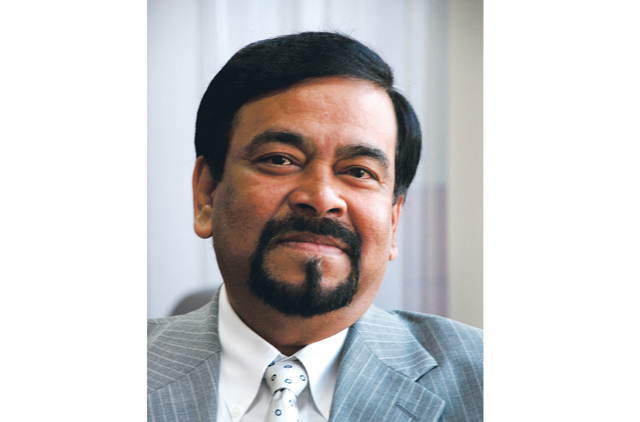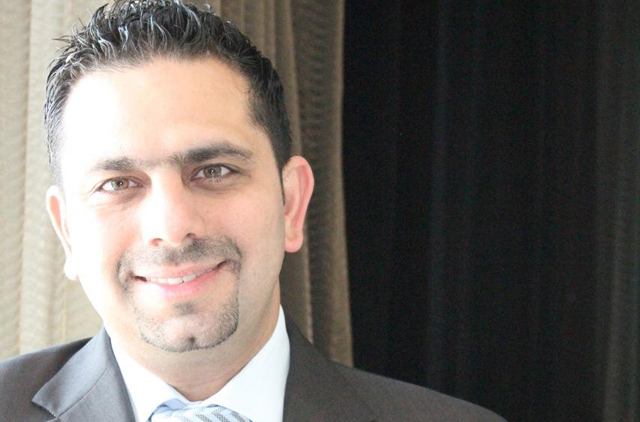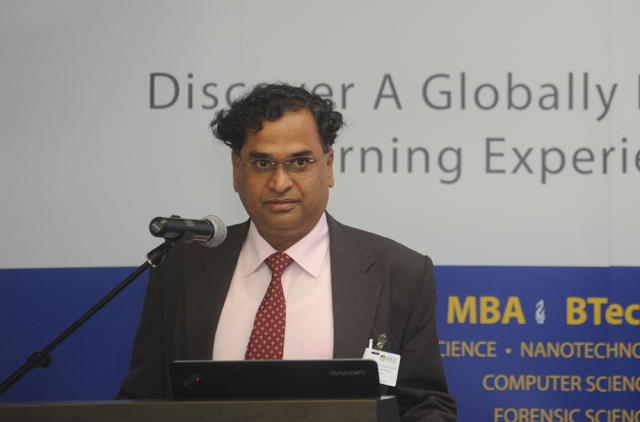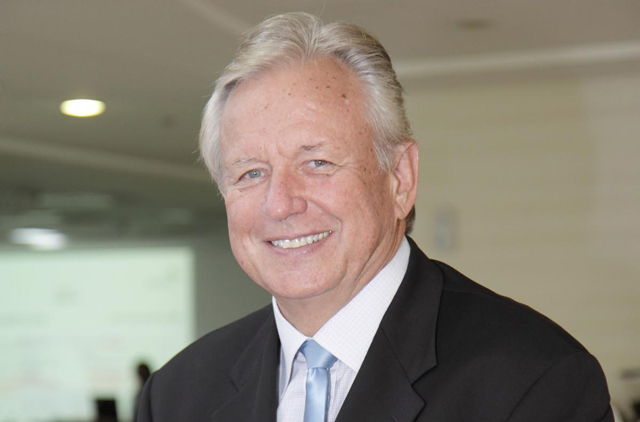If you are at Getex today because you're not sure what you want to study at university, I have some expert advice for you: follow your heart.
That comes from Dr V.R. Venkatesh, who is the Academic Head of Dubai's newest university, Amity. "Do what your heart beats most for. Never follow the mob. Align yourself with market needs," says Dr Venkatesh.
Young people who plan to study in Dubai have literally never had it so good. Twenty years ago, the ambitious had to travel abroad for undergraduate and post-graduate studies. Today, there are 52 universities in Dubai and hundreds of programmes to choose from.
So where do you begin? First, do you have a clear ambition, or a subject you feel passionate about? If so, then it is time to talk to your teachers, your parents, or a mentor. "If you know which university you want to attend, speak to faculty and students to ensure that you are comfortable with the environment, requirements and expectations involved with study at the university," says Wassim Hamadah, marketing manager at Middlesex University's Dubai campus.
The difficult question: should you study what you want or should you study to get a job?
Ideally you can do both but Hamadah adds, "Students should diligently research the programmes available. Research should include analysing the likely growth in employment opportunities in their chosen field as gaining entry to a profession as soon as possible after completing a degree is critical to career progression."
Dr B.R. Ramjee, Director of Manipal University Dubai, says the same care should also be taken by graduates hoping to go on to postgraduate studies. He says: "With the changing economic and political environment around the globe and with the advent of technology at a rapid pace, the excessive reliance placed by students on traditional fields of studies such as engineering, medicine etc., is diminishing.
"Evolving and creative fields of study both in life sciences and humanities such as biotechnology, design and art, communication and new-age media are becoming more popular and sought after by the students. Students have a wide range of options to choose from and while exercising prudence in their selection, they must also learn to go with the inner calling of their aptitude towards a certain field," he says.
Just as a student needs to research the best programme, the universities go through a rigorous process to decide which programmes to offer.
"Clearly for a programme to be successful it must be in response to the needsof a particular student body as well as the communityat large. Additionally, the employability of the graduating students or their ability to pursue higher studies also play a crucial role," says Dr Ramjee.
Purpose of graduation
So what are we educating graduates for? Unemployment is predicted to be a key challenge across this region in coming years, so creating jobs will be a priority for governments.
"It has always been Amity's way to offer the programmes that are relevant to markets. It has been found that banking, insurance, forensic science, solar and alternate energy, nuclear science and technology, urban and real estate, tourism, transport and logistics, will be among the most happening sectors in the UAE. Indeed the government is putting a lot of emphasis on these sectors in a proactive manner," says Dr Venkatesh.
All universities want their graduates to be educated in a manner which makes them an asset in the workplace. To achieve this there is a need to assess what the local needs are. In Dubai recently this has been the focus of attention.
Dr Warren Fox, Executive Director of Higher Education at Dubai's Knowledge and Human Development Authority (KHDA), says: "We approved 30 new programmes last year, and the figure will be about the same this year. We are in talks with other institutions, but we expect the number of new universities coming here to slow down while the programmes on offer expand. "The quality of programmes is of utmost importance to us, along with their suitability for Dubai. The universities carry out research on subjects needed to give them the opportunity to know their student base as well as Dubai."
Amity University opened in Dubai this year with 22 programmes, at the same time as Manipal launched its PhD in Biotechnology and Middlesex began its Masters in TESOL (Teaching English to Speakers of Other Languages). The diversity of these newcomers reflects the changing needs of Dubai.
Hamadah at Middlesex University in Dubai says: "Research often leads to innovation which can inform policy-making and enhance the standard of living and well-being in society."
It is a lot to think about as you weigh up the choices on offer to you as a student in Dubai.















